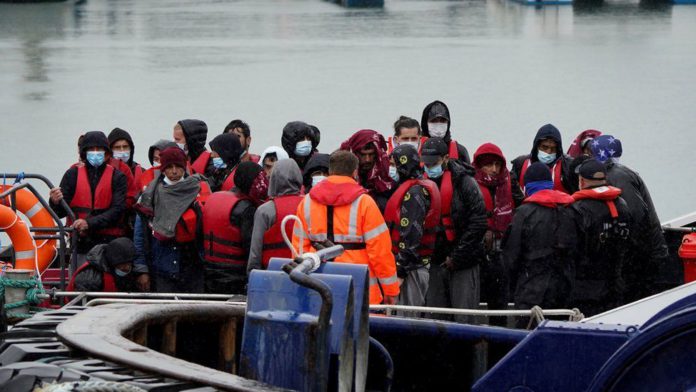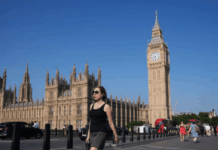
Home Office lawyers have said a plan to send asylum seekers to Rwanda must not be stopped by legal challenges – because it is in the public interest.
The government aims to discourage people crossing the English Channel to seek asylum by making it clear many cases will now be processed in Rwanda.
In a High Court hearing, the lawyers urged a judge to reject challenges on behalf of individual asylum seekers.
Around 100 people have been told they may be on the first flight, on Tuesday.
Just before the start of the hearing, it emerged at least three people have been told they will not now be put on that flight.
The hearing centres on the Home Office’s deal with Rwanda to send some asylum seekers there to have their claims dealt with – if on their way to the UK, they had passed through a safe country where they could have alternatively claimed asylum.
In practice, the policy is targeted at English Channel crossings, with more than 10,000 so far this year.
In papers lodged with the High Court, lawyers said: “Removal to Rwanda pursuant to the migration and economic development partnership [with Rwanda] under the inadmissibility provisions of the immigration rules pursues an important public interest.
READ ALSO:
“Removals of individuals from the UK in accordance with the MEDP are intended to deter people from making dangerous journeys to the UK to claim asylum, which are facilitated by criminal smugglers, when they have already travelled through safe third countries.
“In particular, but not exclusively, this is aimed at deterring arrivals by small boats.
“It is striking that nowhere in the claimants’ submissions [to stop the flight] is there any consideration of the impact of any public interest factors, still less any analysis or balancing of the importance of the public interest being pursued in this regard.”
The case brought against the Home Office by a coalition of campaigners has two stages.
Firstly, the claimants want to block the removal to Rwanda of specific individuals who have been told they are leaving.
Secondly, they want to challenge the lawfulness of any such transfers to Rwanda.






